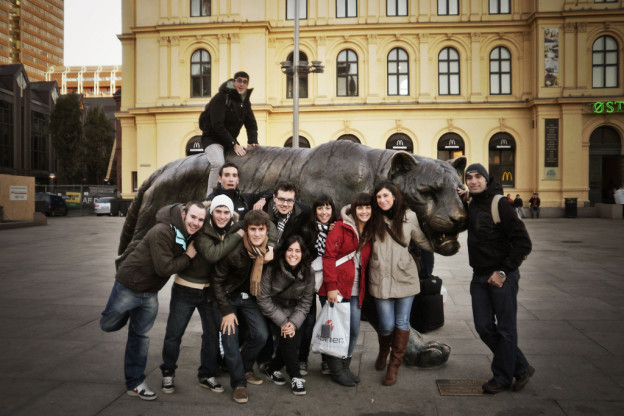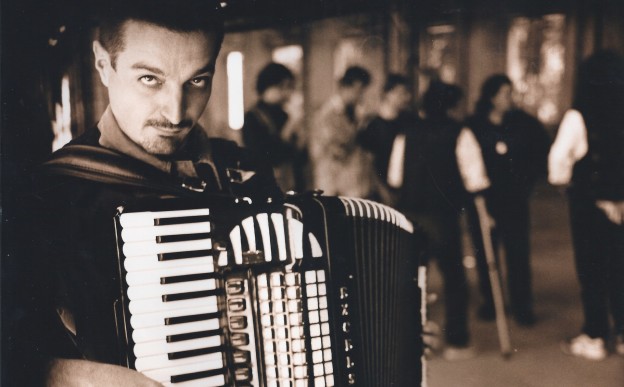Advised by my friend Luca Galli, I read Brussels, The Gentle Monster by Hans Magnus Enzensberger. A distinguished poet and author, Enzensberger takes an impassionate look at the historical anomaly of the European Union. The book has three things to offer:
- An unusually balanced account of the European project. Enzensberger is a critic, but that does not stop him pointing out the many good things about European institutions: the uncompromising renounce to violence and cohercion, the benevolent attitude, the altruism. Conversely, he has no trouble chastising Brussels for the many things that make it unpopular with some people.
- An interesting account of the early days, marked by Churchill and, especially, Jean Monnet. The latter is extremely interesting: a technocrat trying to build peace in postwar France, Monnet seems to have served as the template for the European civil servant, a sort of “Eurocrat Zero”.
- A theory that the European Union is fundamentally undemocratic. In a sense it may have to be, because “democracy just does not work at the supranational level”. Policy implication: the EU should “go on a diet”, restricting its sphere of influence as much as possible.
The first two contributions are valuable. However, I think the third – though it does offer an important intuition – is undefensible. Let me elaborate.
- States are platforms (unless you are a nationalist). What are states for? Most people do not really care about state institutions, like post offices, standard setting bodies or air traffic control authorities. We care about our loved ones, art, having fun, traveling, making money, whatever gets you and your fellow citizens excited. State institutions are platforms infrastructure. They enable us to live our lives more cheaply and easily. When they work well, they are invisible. Just like your phone’s operating system, you’ll only notice them when they break. Most people do not know or particularly care who runs infrastructure, as long as it works (many Italians think Brussels is better at running them than Rome). I wrote “most people”, because there are people that, on the contrary, deeply care about their states as good in and of themselves. These people are called nationalists. Nationalism does not have a good track record in Europe: more nationalism correlates almost without exception with more wars. You should be very cautious around nationalism. It kills people.
- Modern life requires larger platforms than European nation states. As a small (but global) entrepreneur in Europe, I am now struggling with the following problem. If a company in country A wants to hire an employee who resides in country B, it faces quite a lot of complexity, due to the fact that the employee’s salary is taxable in country B. I do not to want to go into the complexities here, but the important point is this: the specifics of doing this depend not on European regulation, but on the bilateral treaty between country A and country B. This implies that, in a Europe with 28 members, there are are 784 (28 to the power of 2) different legal regimes. If you are trying to hire, or get hired, you see how a European platform would work much better than a plethora of national ones. Nation states are simply not large enough to be efficient – unless they are China, or India, or the US. The last two are federations anyway, so why not us?
- The European democratic deficit is caused by member states, not by Brussels. Enzensberger points out flaws in the democratic accountability of European institutions, and he is right. For example, it is illogical, even outrageous that the (elected) European Parliament cannot initiate lawmaking, whereas the Commission (designated by member states) can. So why do we not have more democracy? Why can’t we elect the President of the Commission, why can’t Parliament have a monopoly on lawmaking, enacting a true separation of powers? Because members states do not permit it. And why do they not permit it? Because European-scale full democracy would imply the hollowing out of the power base of national élites. If and when the EU completes its evolution from club of states to a confederal state in its own right, it will no longer need to fall back on member states for its legitimacy. In this sense, Enzensberger is right: where states are involved, no democracy is possible, because states are more interested in their self preservation than in their citizens being part of a fully realized democracy.
- Democracy is a failsafe, not a nirvana. I propose that many political thinkers have an idealized, unrealistic take on democracy. Like states, democracy is not good in itself. We need it, because the people running our platforms could grow power-crazy and drag us, through lies, into war, so it’s good to be able to oust them. But, let’s face it, democratic participation is difficult and costly, and often ineffective as a failsafe (Hitler came to power winning elections in 1933). As Enzensberger readily admits, the European Union is doing a very good job of “again and again valiantly taking action against cartels, oligopolies, protectionist dodges and banned subsidies” (many readers will remember Mario Monti’s giant fine to Microsoft for acting as a monopolist). If the EU is good at this, why not let it get on with it? Ideally, let us elect the president of the Commission, so we can oust her if we do not like the work she does. But otherwise, this stuff is not broken, so don’t fix it.
- Europe’s mission is not accomplished. According to Enzensberger, we do not need Europe to be more integrated than it already is. Why does he say that? Apparently, because he already knows many people in Europe (“divorced husbands, summer homes, business partners…”). I guess this is enough for him. I hope my example with the 784 different legal regimes for something as simple as hiring a person proves our current level of integration is not enough for everyone.
I may be wrong. But then again, I don’t think I am. In the final part chapter of the book, Enzensberger reports a conversation between himself and an anonymous Eurocrat. The latter can very easily deflect most of Enzensberger’s critiques :
Why on earth do you keep on about the European Union? Why do you avoid talking about Rome, Budapest or Dublin? These national governments are not one whit better! their bureaucracies leave a great deal to be desired. There is no lack of narrow-mindedness and incomprehensible hollow verbiage in one as the other. I won’t even mention the scheming and corruption I encounter every day. Lobbyists, if you’ll allow me to be frank, are like flies, no matter, in your country too [Germany]. Just take a closer look at your tax system, your irrational health and education reform. Everything of which you accuse us, you find again if you look in the 27 different national mirrors of this European Union.
That leaves the problem of the democratic deficit. But that’s fixable, if we accept a reduction of the power of states. Enzensberger’s unforgivable failure (and that of his generation) is that he does not consider this as a possible alternative: he does not even contemplate it. I think Jean Monnet’s culture is a much better ticket for a free, prosperous future.
Photo: Erasmus students in Oslo, by Jose Ramòn Alvarez Suarez


